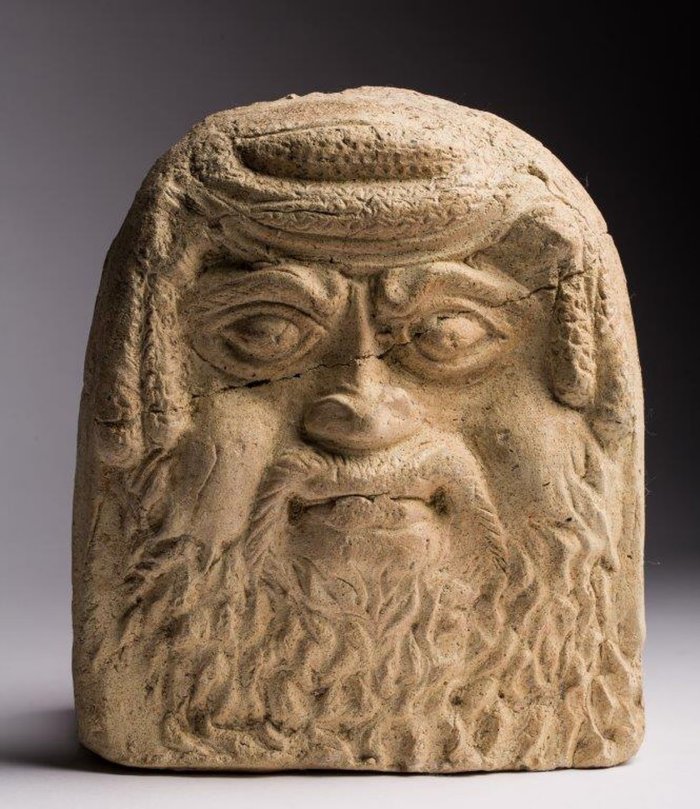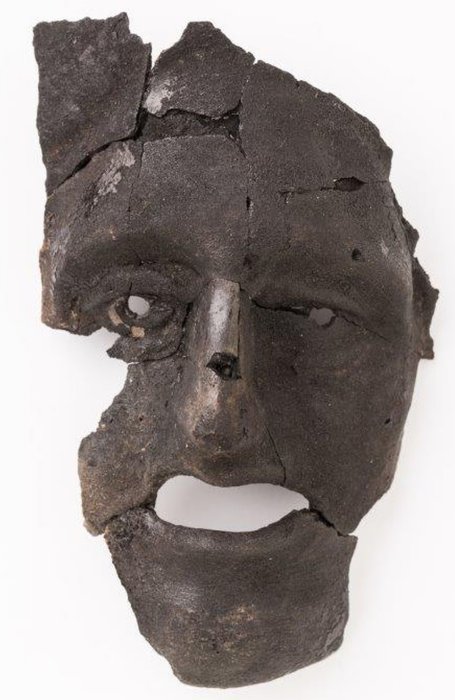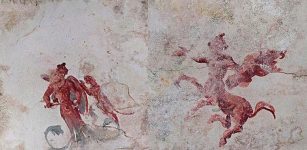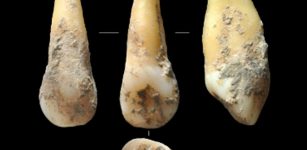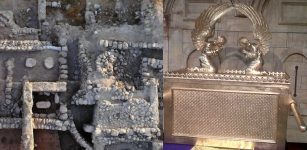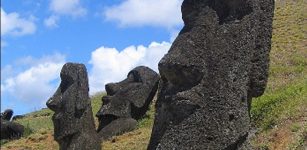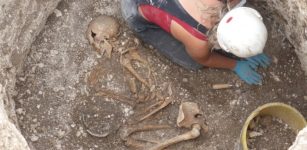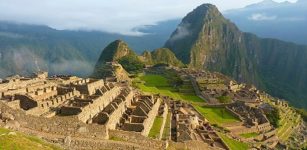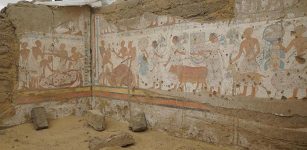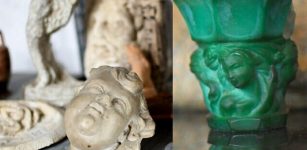Huge Roman Forum Discovered In Unknown Ancient City In Spain
Jan Bartek - AncientPages.com - Archaeologists in Spain have unearthed a huge 2,000-year-old Roman forum at the site of an ancient unknown city.
This fascinating discovery was made by an archaeology team from the Institute of Heritage and Humanities of the University of Zaragoza, co-directed by Alberto Mayayo and Borja Díaz.
At the archaeological site, La Cabañeta, in the El Burgo de Ebro municipality, on the banks of the Ebro River, there are ruins of an ancient city founded by the Romans. The name of the city is unknown, although some experts believe that it could be Castra Aelia, a second-line Roman camp that became a city with a huge forum after the defeat of the Celtiberians in Numancia.
Aerial view of La Cabañeta thermal baths. Credit: Universidad de Zaragoza
Based on what is known, the ancient city did not last long. It was destroyed during the Sertorian War, a military conflict between 82 B.C. and 72 B.C.
The war was a civil conflict fought on the Iberian Peninsula—called Hispania by the Romans—between a faction of rebels and the government in Rome.
"This dramatic event has contributed to making [La Cabañeta] one of the key sites for knowledge of the Roman presence in the interior of the Iberian Peninsula" in this period, Unizar Borja Díaz, co-director of the recent excavations at the University of Zaragoza, Spain, said in a press release.
"The site at La Cabañeta, the name given to the place where the city stood, was discovered in the 1980s in a survey carried out by the Department of Antiquity Sciences of the University of Zaragoza.
Tradition said that Christians had taken refuge there during the persecutions of the 3rd century. The first archaeological investigations confirmed that the religious building was in the vicinity of a site dating from the time of the Roman Republic (2nd-1st centuries BC). About 20 years ago, archaeologists Antonio Ferreruela Gonzalvo and José Antonio Mínguez Morales excavated the place to determine how well the remains had been preserved. They also reviewed old aerial photographs, which allowed them to conclude that the city was protected by a large moat," El País reports.
This year, when scientists excavated at La Cabañeta, they found the remains of an enormous plaza.
Archaeologists from the University of Zaragoza excavating the forum at La Cabañeta. Credit: Universidad de Zaragoza
"The plaza is framed by a portico and surrounded by a series of rooms that opened onto it, which may have been used for commercial activities.
Researchers say the plaza represents a "forum"—a key focal point of any Roman city. In Roman cities, the forum was a multi-purpose public square or open area usually found in a central location.
The forum served as a gathering place, as well as a kind of marketplace. But it also had other purposes, functioning as a site for political debates and other activities," Newsweek reports.
"This is a finding of exceptional importance, not only because of its dimensions and architectural complexity, but also because it is the oldest forum plaza found in the interior of the Iberian Peninsula to date, whose discovery will contribute to radically transform our knowledge of the initial spread of Roman architectural models in Hispania," Borja Díaz said in the press release.
A special decorative roof tile called an 'antefix' from La Cabañeta. Credit: Universidad de Zaragoza
"We are in a very old site. The existence of similar monumental complexes with this age is not common—not even in Italy, where there are few cities that provide such a clear image of Roman urbanism of the 2nd century B.C. It provides us with a valuable picture of the formative phase of the plaza forum model that would end up being standardized" in later periods, Borja Díaz told El País.
A terracotta mask found in La Cabañeta. Credit: Universidad de Zaragoza
The main function of the city that once stood at La Cabañeta may have been an entry and redistribution point for goods arriving by the river, Borja Díaz told El País.
See also: More Archaeology News
"What is certain is that around the year 70 B.C.—only six or seven decades after [the city] was built—it disappeared violently, as demonstrated by the levels of fire detected and the abundant archaeological material abandoned by its inhabitants. We do not even rule out finding human remains," Borja Díaz said.
More excavations can provide answers, shedding light on this historical place.
Written by Jan Bartek - AncientPages.com Staff Writer



